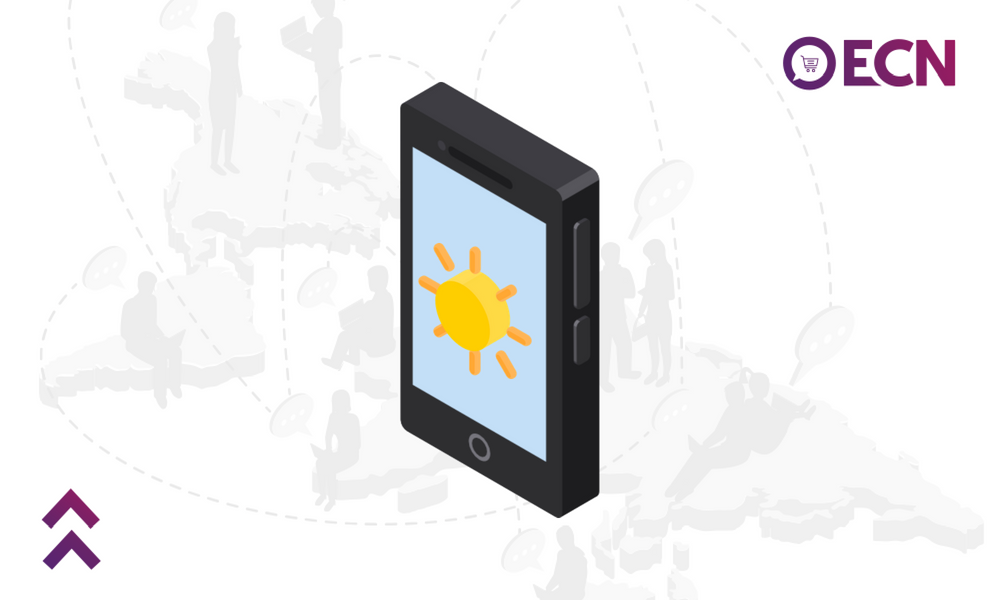The different categories and types of mobile applications is one of the important things to consider for Android App Development creation. Having a good knowledge about them can help you create a mobile app that is rewarding for your business.
So, read this post to know about the different mobile app categories and varieties in types of mobile applications!
Different Types of Mobile Applications
Mobile applications are categorized as:
1. Native Apps
One of the most famous types of mobile applications are ‘native’ to a particular device or platform as they are developed for a single operating system. Apps developed for platforms such as Android, Windows, iOS, Blackberrry, Symbian, and Windows phone are functional only on their respective platform.
Pros
- These are high-performing apps delivering rich user experience to native device users.
- Furthermore, the apps offer extensive range of APIs thereby delivering option of unlimited usage.
- It is possible to access these apps from their respective app store.
- They hold the tendency to reach wider target audience.
Cons
- Native apps are slightly pricey as compared to other apps. It is because such apps require separate maintenance and support for seamless functionality.
2. Hybrid Apps
Apps developed using multi-platform technologies are called as Hybrid apps. For instance, CSS, JavaScript, and HTML5 are used together to develop hybrid apps. These are website applications concealed in a native package.
Pros
- These are multi-platform apps, which mean your app can be used on more than one platform.
- They are relatively easy and fast to build.
- The single coding base functional for different platforms ensures smooth updates and cost-effective maintenance.
- Extensively used APIs, such as accelerometer, gyroscope, and geo-location are available.
Cons
- The apps lack speed, performance, and optimization, which is promising in native apps.
- There might be few design issues that fail to showcase the app in a same way on more than one platform.
3. Web Apps
Web apps are mainly software applications having behavioral tendencies almost similar to native apps. They use a single browser to run and are built in CSS, JavaScript, or HTML5. With the help of these apps, you can redirect users to your site URL and offer the option to install by just creating a page bookmark.
Pros
- These types of mobile applications save device memory as they require minimum storage space.
- It is possible to save personal databases of web apps on a server. Hence, users can access it from all types of devices with an internet connection.
Cons
- It does not offer access to numerous APIs for developers, which is possible in hybrid apps.
- Performance absolutely depends on the network connection and browser compatibility.
Different Categories of Applications
While Apple’s App store categorizes apps under 24 categories and Google Play categorizes mobile apps in 33 types, only 7 types of mobile applications have managed to successfully reach the users. So, know about these 7 categories of apps that have been able to make it to the market!
1. Gaming Apps
This is the most popular category of apps housing more than 24% apps in the App store. It is not surprising as most of the population spent their leisure time playing games.
Gaming apps are exhilarating to the users while prompt app developers to invest more resources and time to create new games and mobile versions of famous stationary games. For users, gaming apps are highly engaging and offer them sense of accomplishment. Hence, developers find it the most lucrative category to invest in.
2. Business Apps
These apps are called as productivity apps and are second most demanded app among users. From buying, selling, billing, tracking work progress to sending emails, there are varieties of business apps available. Such apps are designed for B2B or B2C purposes. The main aim of these apps is to increase the productivity and reduce expenses for a business. At the same time, it intends to offer maximum convenience and widen audience pool in the market.
3. Educational Apps
The modern society is more cautious about self-education, which brings in the role of educational apps. Such apps are designed to help kids enjoy while learning new concepts and methodologies. Even some educational apps are useful for teachers and support their teaching process.
4. Lifestyle Apps
From fitness, shopping, workout, to weight loss, virtual trial room, and more, applications falling under this category are meant to enhance the personal lifestyle experience for users. These apps are related to offer users ideal solutions related to their working tasks, fun, or other lifestyle problems.
5. Entertainment Apps
Watching videos online, searching nearest event, chatting, posting photos on social sites, and more, all those apps that are built to agitate the user’s mind are categorized as entertainment apps. Such apps are highly engaging and with fun and interactive elements featured in these apps, the overall experience is too refreshing for the users.
6. Utility Apps
These apps are mostly used by us on a daily basis. From booking a cab, to hiring a home repair service, to undertaking healthcare, utility apps are ideal to display the shortest user sessions times. Users love these apps as it helps them to get things done early and easily.
7. Travel Apps
With clear and concise information, these apps are designed to make traveling more comfortable, easier, informative, and fun-filled to the users. While some apps help locating a route other guides users through unknown locations using maps. There are even travel apps that offer translation assistance to the users.
Summing Up
Though the types and categories of mobile apps are quite comprehensive, we have discussed most prominent one in this post. Being a developer, you can decide for any type of app to build, but your aim must be to offer usability and engagement to the end users. The choice of app you develop is dictated purely from the type and requirements of your business.






